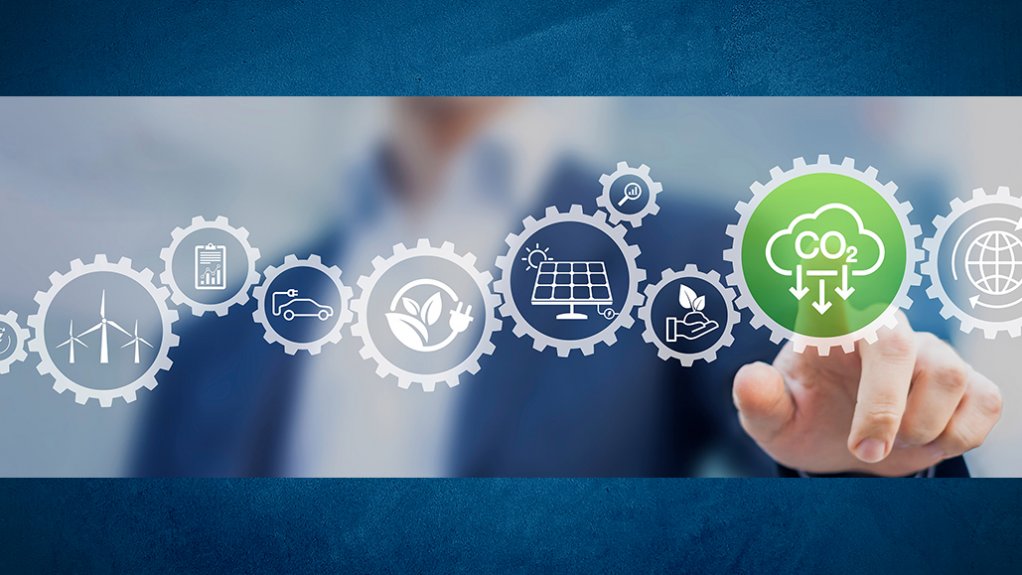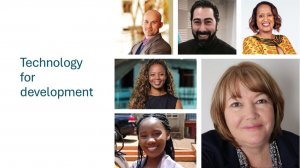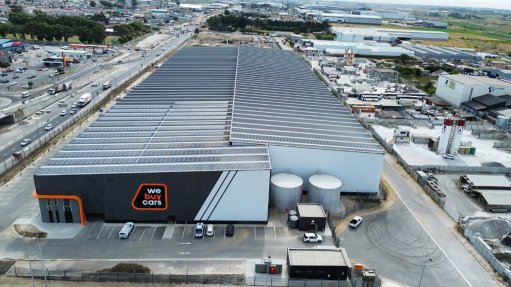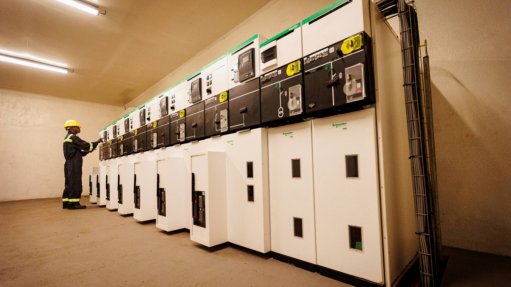Tech advancements in Africa have greatly advanced ESG, SDG imperatives – panel


An ESG Africa Conference & Expo webinar panel explores how technology can drive sustainability, support ESG goals and create shared value while addressing inequality.
Technology advancements in Africa are helping to advance various environmental, social and governance (ESG) goals for companies and industries, and contribute to the efforts to achieve the UN Sustainable Development Goals (SDGs).
In a panel discussion hosted by Creamer Media on November 28, experts from various industries agreed that technology has been absolutely essential in driving development on the African continent.
Vitality Health International Africa chief strategy and commercial officer Jessica Chivinge cited the example of advancements in telemedicine, particularly in Kenya and Nigeria.
“Telemedicine has allowed remotely-based communities to access healthcare professionals and mobile health applications, which affords them access to more information and understanding of their own health. Telemedicine is making healthcare in Africa more affordable and more accessible for rural communities.”
"Additionally, AI in healthcare has enabled more accurate diagnostics and for treatment plans for patients to be created, especially in areas without advanced healthcare facilities,” she added.
MTN sustainability and shared value group executive Marina Madale said the group had been leading digital solutions on the continent, including those aimed at financial inclusion.
“We are seeing more technology in the consumer space being adopted, which unlocks broader socioeconomic development,” she stated.
She agreed with Chivinge that telemedicine was a significant advancement for ESG on the continent, with MTN working with other companies to have drones in Uganda and Rwanda delivering medication and blood to rural and remote areas.
“We are seeing more rural technology that helps cover areas that are harder to reach, and through increasing forms of mobile technology,” Madale noted.
Injozi group CEO Nick Argyros cited the example of technology advancement in Africa having helped people to gain access to US development funding and grants, as well as learning opportunities, through mobile applications.
He said miniscule amounts of data, such as a full academic course of under 5 MB in size, have enabled people to learn and access funding by using the most basic of technologies.
Kenya-based Amwats Tech product manager Joy Omari said AI had helped the agriculture sector in Africa to become more sustainable from an ESG perspective. She explained how AI in Kenya had helped farmers to monitor crops, predict yield and better manage water use.
“We now have more structured systems where we can measure amounts of rainfall and store it for later use. Farmers can also do predictive analysis through AI that allows for better planning.
“Additionally, AI helps monitor carbon emissions and predict how it will grow. This technology also aids in waste management and pollution reduction in the sector,” she explained.
NxGN co-founder and director Dirk Kok said technology such as AI had helped to bridge the language barrier on the continent between companies and employees, which speaks to the social imperatives of ESG and inclusion.
“Technology allows employees to interact in their native tongue, with this data being able to be translated in seconds. Putting technology in employees’ hands makes operations safer and more efficient, while increasing employee engagement rates.
“By getting more information from employees, employers have a better understanding of the workplace to ultimately make healthier and better choices that feed into the ESG agenda,” Kok noted.
From an SDG perspective, Madale said weather prediction technology had allowed African countries to anticipate extreme weather events with greater accuracy and better manage disasters through preventive measures to protect lives and livelihoods.
Chivinge cited the example of good health and wellbeing being advanced by digital technology on the continent, including applications that reminded people to take medication, which helped reduce the number of disease outbreaks.
Citing the example of waste management, Argyros said AI was helping to sort recyclables in many areas of the continent, which spoke to the SDGs related to consumption and production.
Omari highlighted how the Internet of Things technology in cities was enabling better management of water resources and eliminating the need to approach labs for analysis, which is more timeous.
CHALLENGES
Some of the challenges arising from increased use of AI and other technology, however, the experts pointed out, related to regulation. Argyros stressed the importance of proactive regulation instead of reactive, which was often hard for governments to do given the pace of new technological developments.
There are also issues of copyright, with some AI systems being able to generate images, videos and music, without accountability for intellectual property infringements.
Madale emphasised the problem of inherent biases in AI and misuse of the technology to create criminally chargeable content – which often infringed on human rights.
“It is clear we need to move towards ‘ethical by design’ principles in AI capabilities and development. While the European Union has advanced legislation on AI, South Africa is still developing its policies in this regard. We need to make sure the policies take best practice into account, as well as nuances and cultural norms that are unique to African countries,” Madale added.
She continued that, without legislative environments enabling technologies to come to the continent, Africa would lag behind on development that could have benefited societies and the environment.
Additionally, advancements in AI, for example, will bring more investment to the continent and thereby more socioeconomic development.
Chivinge emphasised the importance of supporting startup companies in the technology space. “African countries are not doing enough to encourage young entrepreneurs from a policy and funding perspective. We need to strengthen the ecosystem of support for young people and young companies.”
Omari highlighted the challenge of schools and teachers not being equipped to teach AI, robotics or coding to learners, which widened the skills gap on the continent.
Argyros agreed, stating that many people still did not have access to the Internet in Africa, or lacked digital literacy.
Moreover, the experts agreed that technology such as AI would lead to some job losses, but said it would also create a wave of new jobs that people can be upskilled or reskilled for to be more productive and efficient.
Madale stressed the importance of mapping what skills were needed as well as the job categories for these developments in each country and then adjusting the education system and incentives for young people to get involved accordingly.
Chivinge proposed the challenge of time being spent training people and then losing them to the global competitive market. She said skills retention should be an equally important consideration in the skills development process.
“How are countries incentivising people to stay in the country? If we want to unlock skills meaningfully, we need to address the issue of skills migration.”
Article Enquiry
Email Article
Save Article
Feedback
To advertise email advertising@creamermedia.co.za or click here
Comments
Press Office
Announcements
What's On
Subscribe to improve your user experience...
Option 1 (equivalent of R125 a month):
Receive a weekly copy of Creamer Media's Engineering News & Mining Weekly magazine
(print copy for those in South Africa and e-magazine for those outside of South Africa)
Receive daily email newsletters
Access to full search results
Access archive of magazine back copies
Access to Projects in Progress
Access to ONE Research Report of your choice in PDF format
Option 2 (equivalent of R375 a month):
All benefits from Option 1
PLUS
Access to Creamer Media's Research Channel Africa for ALL Research Reports, in PDF format, on various industrial and mining sectors
including Electricity; Water; Energy Transition; Hydrogen; Roads, Rail and Ports; Coal; Gold; Platinum; Battery Metals; etc.
Already a subscriber?
Forgotten your password?
Receive weekly copy of Creamer Media's Engineering News & Mining Weekly magazine (print copy for those in South Africa and e-magazine for those outside of South Africa)
➕
Recieve daily email newsletters
➕
Access to full search results
➕
Access archive of magazine back copies
➕
Access to Projects in Progress
➕
Access to ONE Research Report of your choice in PDF format
RESEARCH CHANNEL AFRICA
R4500 (equivalent of R375 a month)
SUBSCRIBEAll benefits from Option 1
➕
Access to Creamer Media's Research Channel Africa for ALL Research Reports on various industrial and mining sectors, in PDF format, including on:
Electricity
➕
Water
➕
Energy Transition
➕
Hydrogen
➕
Roads, Rail and Ports
➕
Coal
➕
Gold
➕
Platinum
➕
Battery Metals
➕
etc.
Receive all benefits from Option 1 or Option 2 delivered to numerous people at your company
➕
Multiple User names and Passwords for simultaneous log-ins
➕
Intranet integration access to all in your organisation




















